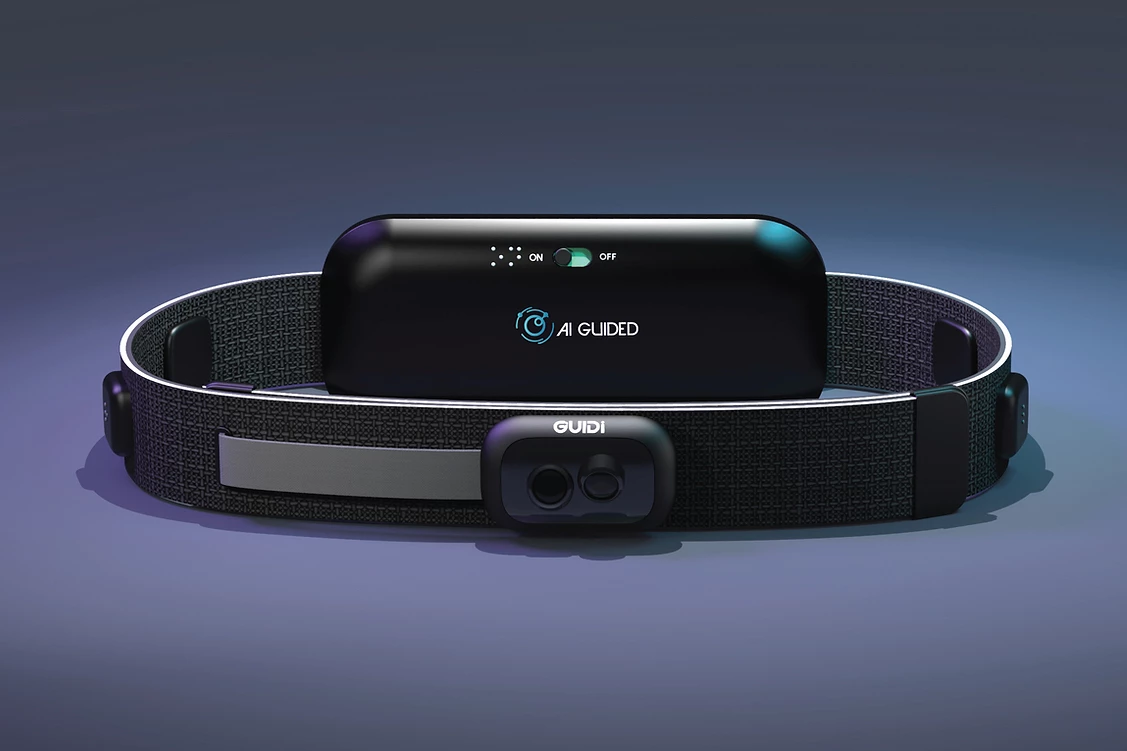The traditional white cane may never become completely obsolete, but there certainly are a number of devices that could give it a run for its money. One of the latest is the GUIDi, which guides blind users via cameras and buzzers on a belt.
Made by Hong Kong assisted mobility company AI Guided, GUIDi is a waist-worn device that incorporates a forward-facing dual-camera module, a microprocessor/electronics module in the back, and two haptic feedback units on either side (for a total of four).
As the user walks, the two 8-megapixel cameras scan their surroundings. AI-based software on the microprocessor analyzes the video in real time, detecting and identifying items such as trees, sign posts and litter bins. The GUIDi responds by silently activating the relevant haptic feedback unit(s), which vibrate to let the user know an obstacle is present in that direction.

Unlike a white cane, the GUIDi is claimed to have a maximum sensing range of 5 meters (16 ft). It also detects overhanging hazards such as tree branches, which would be missed by a cane moving along the ground.
Additionally, utilizing an accompanying app on a Bluetooth-linked smartphone, users can select a geographical location to which the GUIDi will subsequently guide them. Along the way, it will continuously seek out an obstacle-free path for them to follow. One charge of its lithium battery is claimed to be good for eight to ten hours of use.
Although the GUIDi is not yet in production, prospective users can inquire about taking part in a free trial via the company website.
Source: AI Guided




